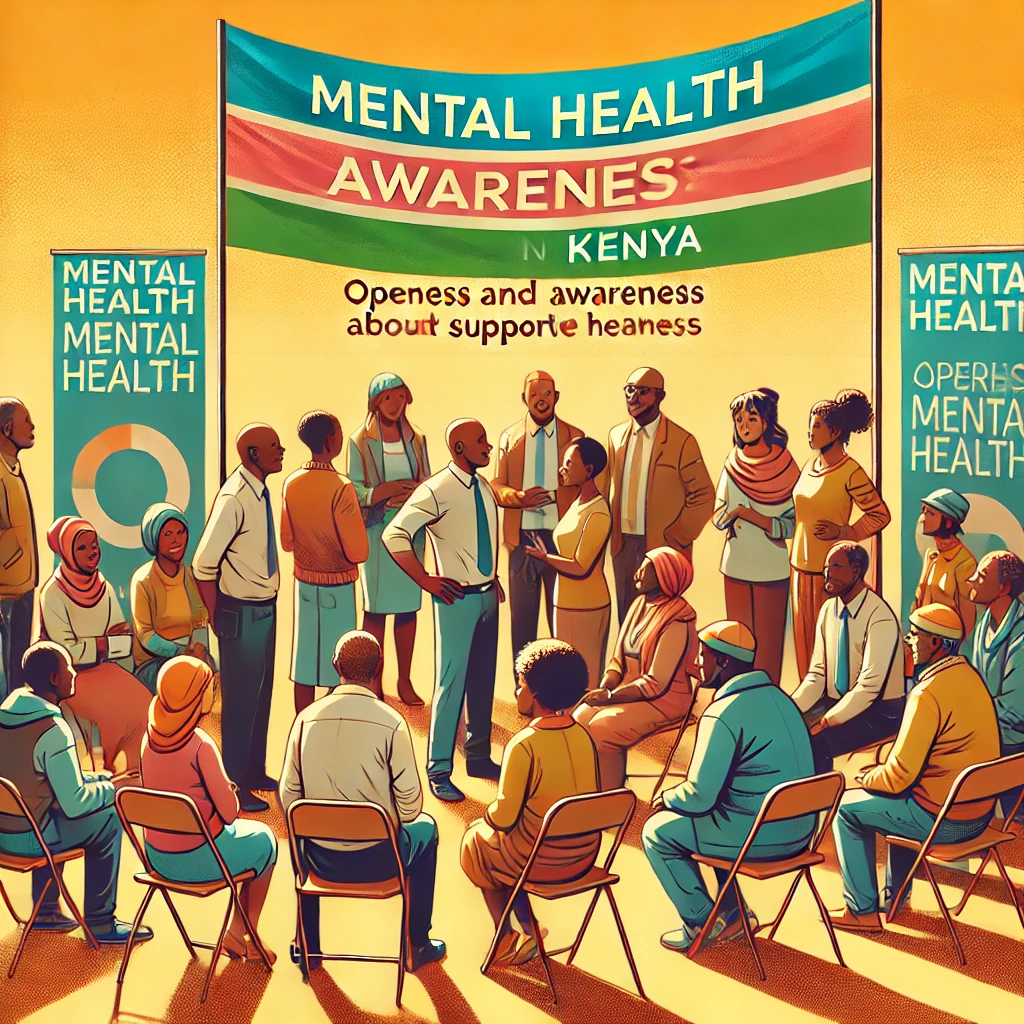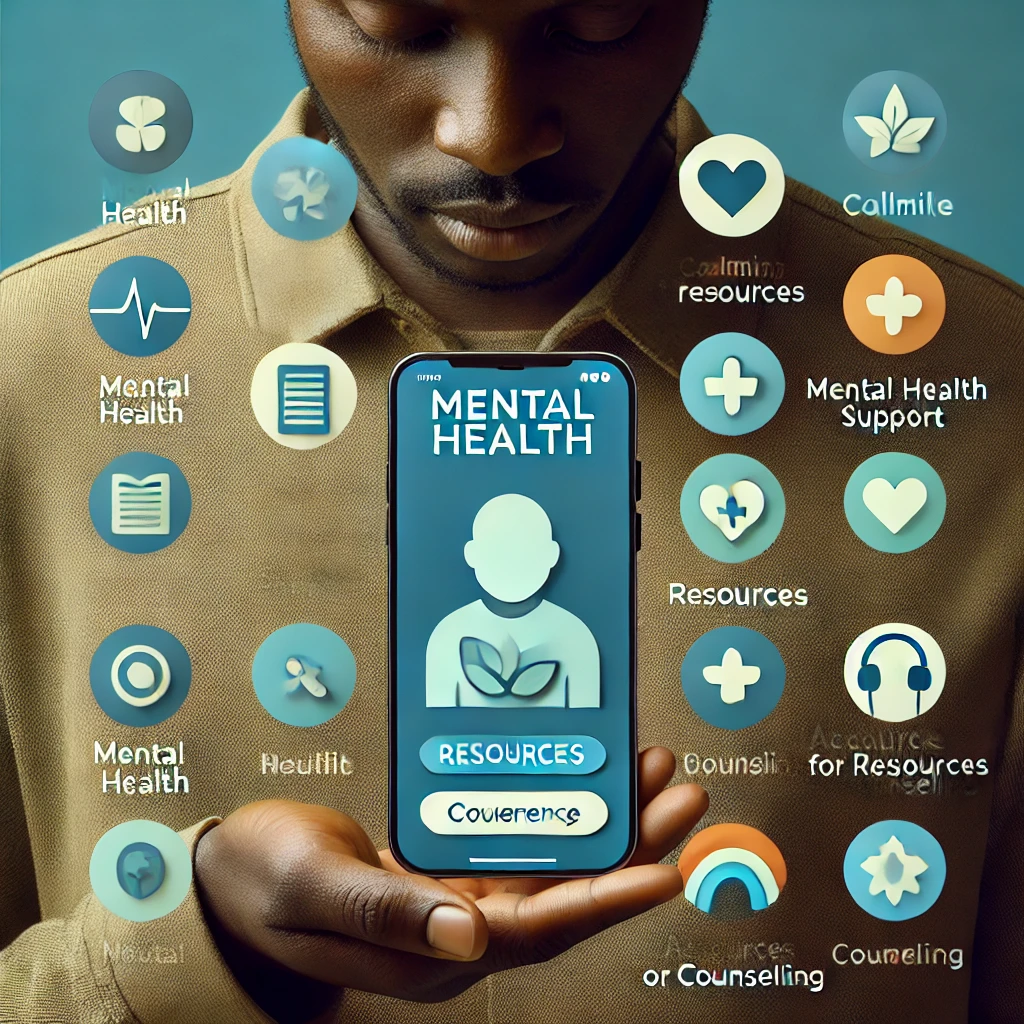

Mental Health in Kenya 2025: Breaking Stigma and Building Support Systems
In recent years, mental health has emerged as a significant issue in Kenya, with increasing awareness about conditions like depression, anxiety, and trauma. However, despite these advancements, stigma, lack of resources, and cultural perceptions continue to hinder many Kenyans from seeking help. This article explores the current state of mental health in Kenya, the impact of stigma, and the ongoing efforts to build a more supportive environment for mental well-being.
1. The Current State of Mental Health in Kenya
Mental health challenges are common, but access to mental health services in Kenya remains limited. According to the World Health Organization (WHO), about one in four Kenyans may face a mental health disorder in their lifetime, yet only a small percentage receive adequate care. Factors influencing mental health issues in Kenya include:

- Urbanization and Economic Pressures: Rapid urbanization has increased financial stress, unemployment, and social isolation, especially in cities like Nairobi.
- Trauma from Conflicts and Displacement: Many communities, particularly those in northern Kenya, experience trauma from ethnic conflicts, political instability, and displacement.
- Substance Abuse: Alcohol and drug misuse are prevalent and often associated with poor mental health outcomes, with limited access to rehabilitation resources.
- Youth Mental Health Crisis: The youth population faces challenges like academic pressure, unemployment, and social media influence, which contribute to mental health issues. Data from UNICEF indicates that young Kenyans report high levels of stress, depression, and anxiety.
2. Stigma Around Mental Health

Despite growing awareness, stigma remains a significant barrier to seeking mental health services in Kenya. Common stigmas include:
- Misconceptions about Mental Illness: Many people still view mental health conditions as weaknesses, personal failings, or “curses,” leading to shame and isolation for those affected.
- Fear of Discrimination: People struggling with mental health issues often avoid seeking help due to fear of being judged or facing discrimination in their communities, workplaces, and even schools.
- Cultural Beliefs: Traditional beliefs can sometimes associate mental health conditions with spiritual issues, leading families to seek religious or traditional interventions rather than medical support.
The Impact of Stigma

The stigma surrounding mental health often prevents individuals from seeking timely care, which can lead to worsening conditions. Studies show that people are more likely to suffer in silence, avoid talking about their issues, and experience prolonged episodes of mental distress. According to a report by Kenya Mental Health Policy, stigma is one of the main obstacles to building a strong mental health system in the country.
3. Building Mental Health Support Systems

To address the challenges associated with mental health, Kenya is making progress through various support systems and community initiatives:
Government Initiatives
The Kenyan government has launched the Mental Health Policy 2015-2030, aimed at improving mental health care and increasing access to services. The policy outlines strategies for integrating mental health into primary care and training healthcare providers to recognize and treat mental health conditions. Additionally, the Ministry of Health has considered establishing a National Wellness Center to provide comprehensive mental health support.
Community Support Programs

Community-based mental health programs are gaining momentum, offering services that focus on counseling, awareness, and outreach. Organizations such as BasicNeeds Kenya and Amref Health Africa work with communities to provide accessible, localized mental health care and advocate for increased awareness.
Mental Health Hotlines and Online Counseling
In response to the demand for mental health support, several organizations have launched mental health hotlines, allowing people to receive help anonymously. Online counseling platforms like Kenya Red Cross Society’s Bonga offer free and accessible mental health support to anyone in need.
Youth-Focused Mental Health Initiatives

Recognizing the importance of addressing youth mental health, programs such as UNICEF Kenya’s Youth Wellbeing Project offer guidance and support specifically aimed at young people. Schools and universities are also introducing counseling services and mental health awareness campaigns to support students.
4. Mental Health Awareness and Education

Awareness and education are essential to breaking the stigma associated with mental health in Kenya. Key efforts include:
- Public Awareness Campaigns: Initiatives like the Mental Health Awareness Week and media campaigns have helped start important conversations about mental health, making it easier for people to talk openly about their experiences.
- Workplace Mental Health Programs: Some companies in Kenya are introducing mental health support for employees, including wellness days, counseling, and stress management workshops. This shift in workplace culture is helping to normalize conversations around mental health.
- Training for Health Workers: Organizations are training healthcare professionals in mental health services to improve their ability to diagnose and treat patients with mental health conditions. Increased training can lead to better support and reduce the burden on specialist mental health facilities.
5. The Role of Technology in Mental Health Support

Technology has become a valuable tool in providing mental health support, particularly for individuals in remote areas or those uncomfortable with face-to-face consultations. Some ways technology is being utilized include:
- Mobile Apps for Mental Health: Apps such as MindEase Kenya and Wellness Hub offer mental health resources, coping strategies, and self-help tools. These apps allow users to track their mental health, access relaxation techniques, and connect with counselors.
- Telemedicine Services: Telemedicine platforms provide virtual therapy sessions and consultations with trained mental health professionals. This is especially helpful in reaching people who live far from healthcare facilities or prefer the privacy of online services.
6. Moving Forward: What Needs to Change

While Kenya has made significant progress in mental health, more work is needed to establish a comprehensive and sustainable mental health system. Key recommendations include:
- Increased Funding: Mental health services remain underfunded, with limited resources allocated in the national budget. Increasing funding could expand access to services and improve the availability of trained mental health professionals.
- Policy Implementation and Monitoring: Strengthening policy implementation, monitoring, and accountability measures is essential to ensuring the goals outlined in Kenya’s Mental Health Policy are met.
- Continued Education and Anti-Stigma Campaigns: Raising awareness about mental health should remain a top priority, with an emphasis on reducing stigma and changing cultural perceptions.
- Community-Based Mental Health Care: Establishing community-based care models can help decentralize mental health services and make them accessible to people across Kenya.
Conclusion

The journey to improving mental health in Kenya involves breaking down stigma, increasing access to resources, and building support systems that address the diverse needs of Kenyan communities. Through government policies, community initiatives, and technological solutions, Kenya is taking steps toward creating a mental health-friendly society. Kenyan Chronicles will continue to bring awareness to mental health issues, support initiatives, and share stories of resilience, contributing to a healthier and more supportive environment for all.
Mental health is a journey, and your voice matters. How do you think Kenya can improve its mental health support systems? Share your thoughts in the comments, and follow Kenyan Chronicles for more insights on mental health in Kenya.






